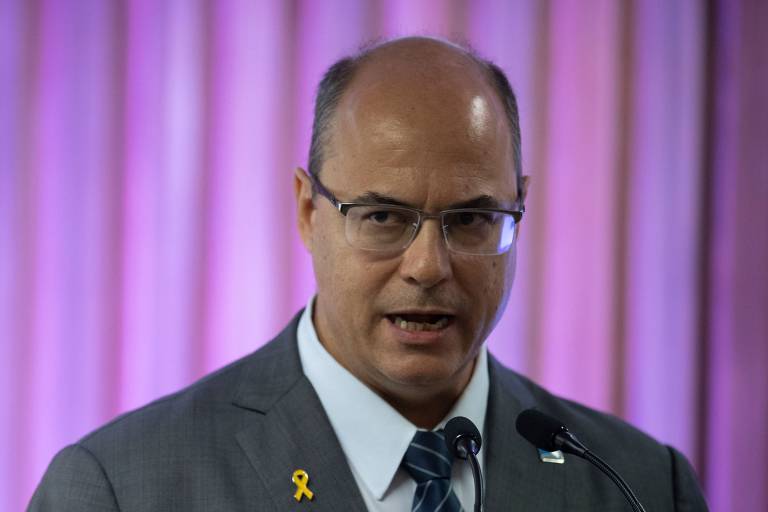For Rio de Janeiro Governor Wilson Witzel (PSC), the increased police killings in the first half of this year were due to the higher number of operations and will decrease now because "the police have already sent the message."
"The police went on to do more operations, go more into communities to make drug and gun seizures, and at the beginning of the government the tendency was for organized crime to confront the police," he said at a news conference on Monday.
"This trend is certainly diminishing, and violent lethality also tends to decrease, because the police have already sent the message and have shown that there will be no leniency with those who use guns against society and police," he continued.
The number of deaths by police in RJ had been rising for five years in the first semesters. It hit a new record now, considering June: 881 deaths this year, compared to 769 in the first six months of last year, up 15%.
Meanwhile, seven military police officers died in service in 2019, half of the 15 who died in the same period in 2018.
Witzel has endorsed police actions that result in death even before completing investigations. This was what happened in February when police killed 15 people in Morro de Fallet in downtown Rio. The Public Defender's Office points to evidence of police abuse and a failure to investigate the case.
This was the deadliest operation in 12 years. A 2007 operation in Complexo de Alamão left 19 dead.
"You don't fight terrorism with flowers; you fight with research, weapons of the same caliber, and a rigorous process. If they do not surrender, they will be killed. The message was sent, do not confront the police," the governor declared again on Monday.
Translated by Kiratiana Freelon
